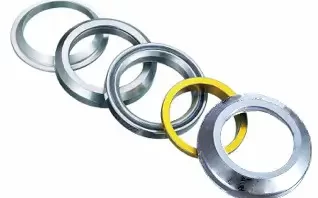Bearings play a crucial role in mechanical systems, providing support and reducing friction between moving parts. However, their impact goes beyond just enabling smooth operation. In this article, we will explore the influence of bearings on mechanical vibration and the important factors to consider for optimal performance.
The Relationship Between Bearings and Mechanical Vibration
Mechanical vibration is an inherent characteristic of many systems, ranging from engines and turbines to industrial machinery. Bearings not only support rotating shafts but also affect the dynamics of the system, directly influencing the level and characteristics of mechanical vibration. The interaction between bearings and vibration can have both positive and negative effects, making it crucial to understand their relationship.
Factors Affecting Vibration Levels
Several factors contribute to the vibration levels in a mechanical system. The type and quality of bearings have a significant impact on these levels. Misalignment, excessive load, improper lubrication, and worn-out bearings can all cause increased vibration. Additionally, the stiffness and damping properties of the bearings can influence the resonance behavior of the system, affecting vibration amplitudes at specific frequencies.
Bearings as Vibration Dampers
While excessive vibration can lead to premature component failure and decreased performance, properly designed bearings can act as vibration dampers. By selecting bearings with appropriate stiffness and damping characteristics, engineers can effectively mitigate vibration levels. The use of specialized bearing materials and designs, such as elastomeric bearings or hydrodynamic bearings, can further enhance damping properties and reduce vibration transmission.
Importance of Regular Maintenance
Regular maintenance is vital for ensuring optimal bearing performance and minimizing vibration. Inadequate lubrication, contamination, and wear can compromise the integrity of the bearings, resulting in increased vibration levels. Periodic inspections, lubrication checks, and replacement of worn-out bearings are essential maintenance practices that help keep vibration at acceptable levels and extend the lifespan of the mechanical system.
Conclusion
The influence of bearings on mechanical vibration is undeniable. Proper bearing selection, considering factors such as stiffness, damping, and load capacity, is crucial for maintaining desired vibration levels and system performance. Regular maintenance and monitoring play a vital role in preventing excessive vibration and ensuring the longevity of mechanical systems. By understanding the relationship between bearings and vibration, engineers can design and operate more efficient and reliable machinery.
.webp)

